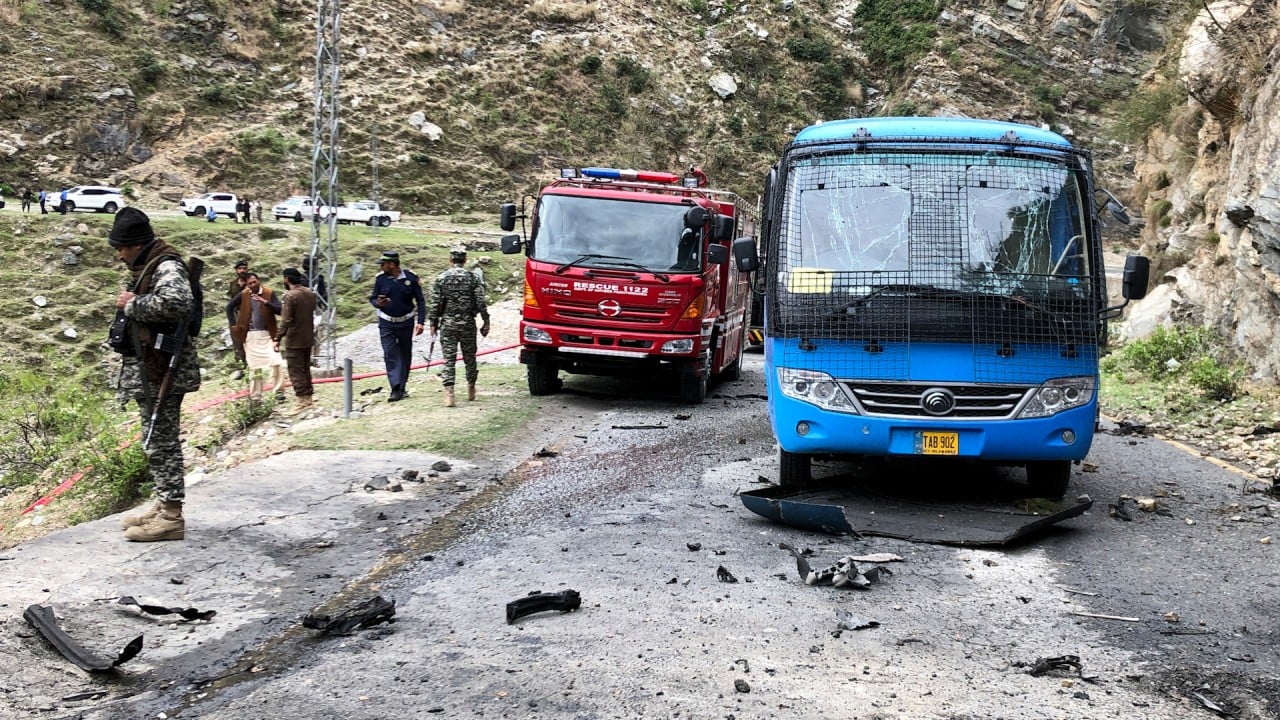
China calls on SCO to boost security cooperation in wake of terrorism attacks
- Wang Yi tells member states that recent attacks in Russia and Pakistan show there is ‘still a long way to go’ in the fight against terror
- The top Chinese diplomat also said the Eurasia bloc should keep up a continuous engagement with Afghanistan and guide it towards ‘good neighbourliness’
Speaking at the SCO ministerial council meeting in Kazakhstan on Tuesday, Wang told his fellow foreign ministers that the recent attacks on some member states “have shown that there is still a long way to go in the fight against terrorism”.
“To that end, we must further strengthen the exchange of information, joint operations and personnel training,” he said.
Afghanistan, which borders five SCO member states – China, Pakistan, Tajikistan, Uzbekistan and Iran – received observer status in 2012 but has not taken part in the group since the Taliban returned to power in 2021.
This is despite the Taliban publicly urging the SCO to invite Afghanistan representatives to its meetings.
The SCO, formed in 2001 by China, Russia and four former Soviet republics, has traditionally emphasised its battle against the “three evils” of terrorism, separatism and extremism.
But anti-terrorism was expected to return to the top of the Eurasia bloc’s agenda in Astana, following the attack on a Moscow concert hall in March that killed 143, and a suicide bombing in northern Pakistan days later that left five Chinese nationals dead.
Islamic State Khorasan (Isis-K), an Afghanistan-based affiliate of Islamic State, claimed responsibility for the raid, which the US State Department said was probably intended as a show of the group’s ability to extend its reach beyond South Asia.
According to State Department information, Isis-K was also protesting Moscow’s relationship with the Taliban in Afghanistan, as well as its ongoing military intervention against Isis in Syria.
Wang said the SCO “must continue to engage in dialogue with Afghanistan and guide the country towards sound governance, focused development, a resolute fight against terrorism and good neighbourliness, so as to achieve long-term peace and security at an early date”.
He also said security should be a joint responsibility and that the SCO’s member states should step up coordination, according to the Chinese foreign ministry.
“China is ready to work with all parties to improve the organisation’s mechanism for addressing security threats and challenges, deepen exchanges and cooperation in strategy, defence, law enforcement, information and biosecurity, and lift the overall level of security in the region,” he said.
Wang stressed the importance of strategic autonomy and coordination between member states. “We will take the future and destiny of our country and … will never allow external forces to turn the region into a geopolitical battleground.”


